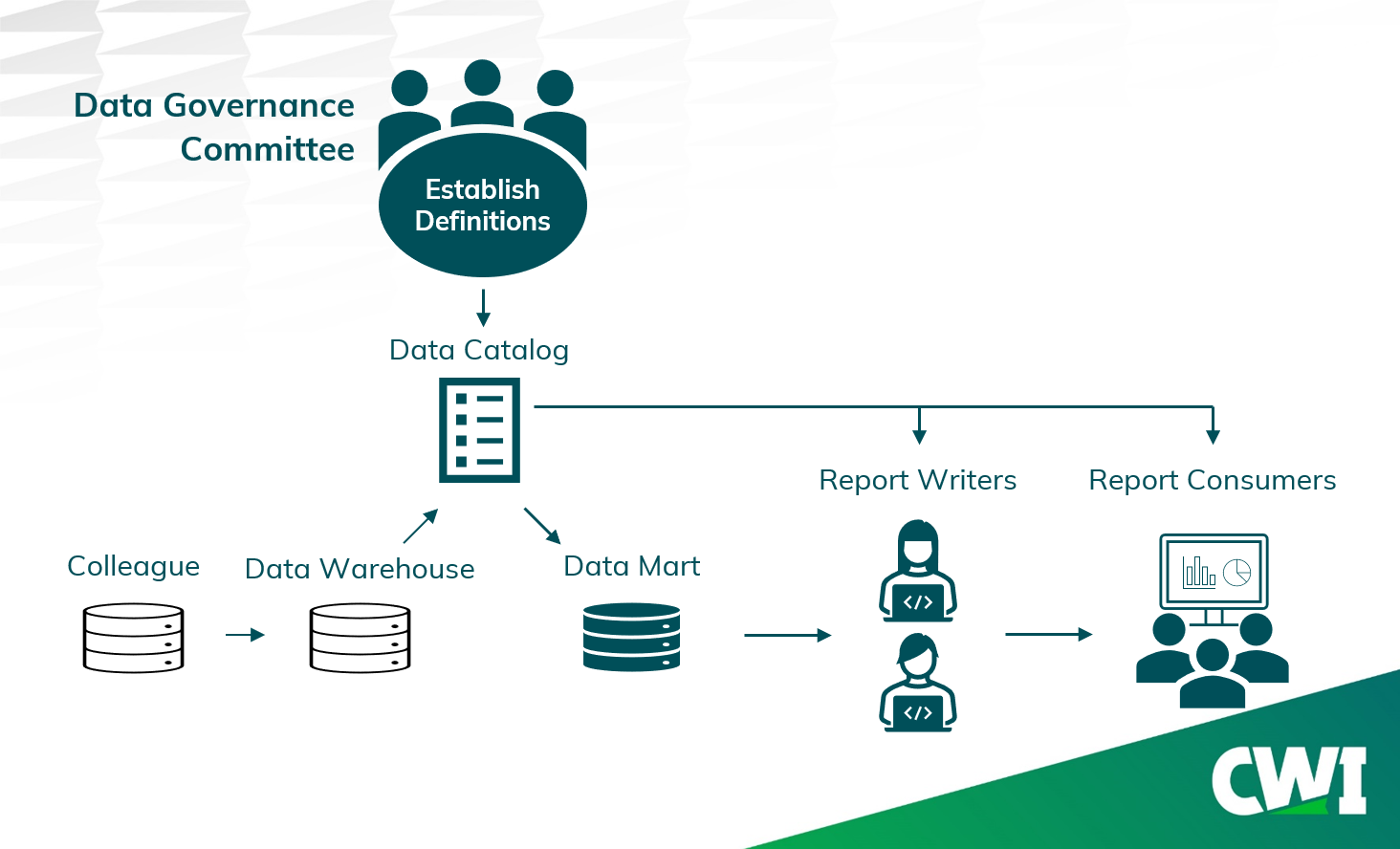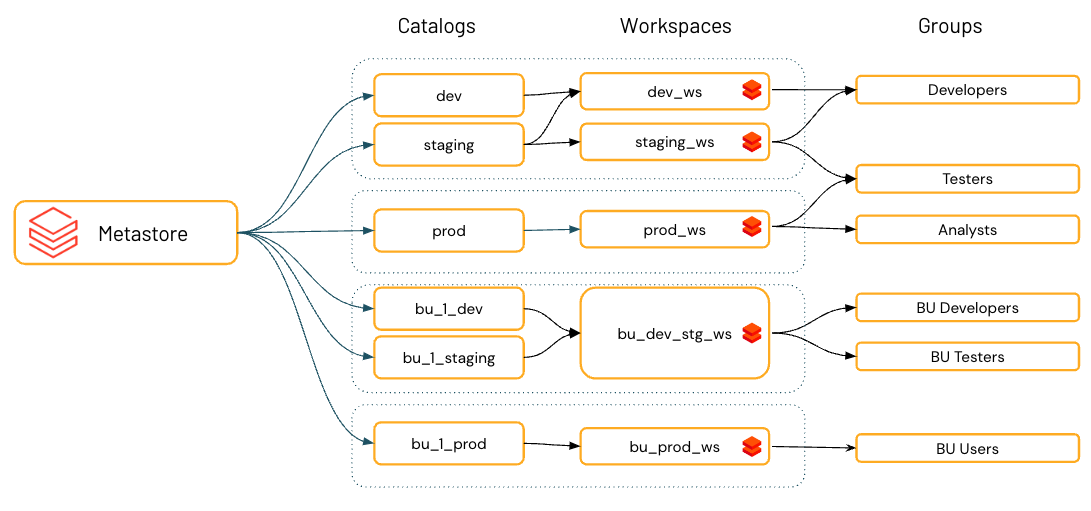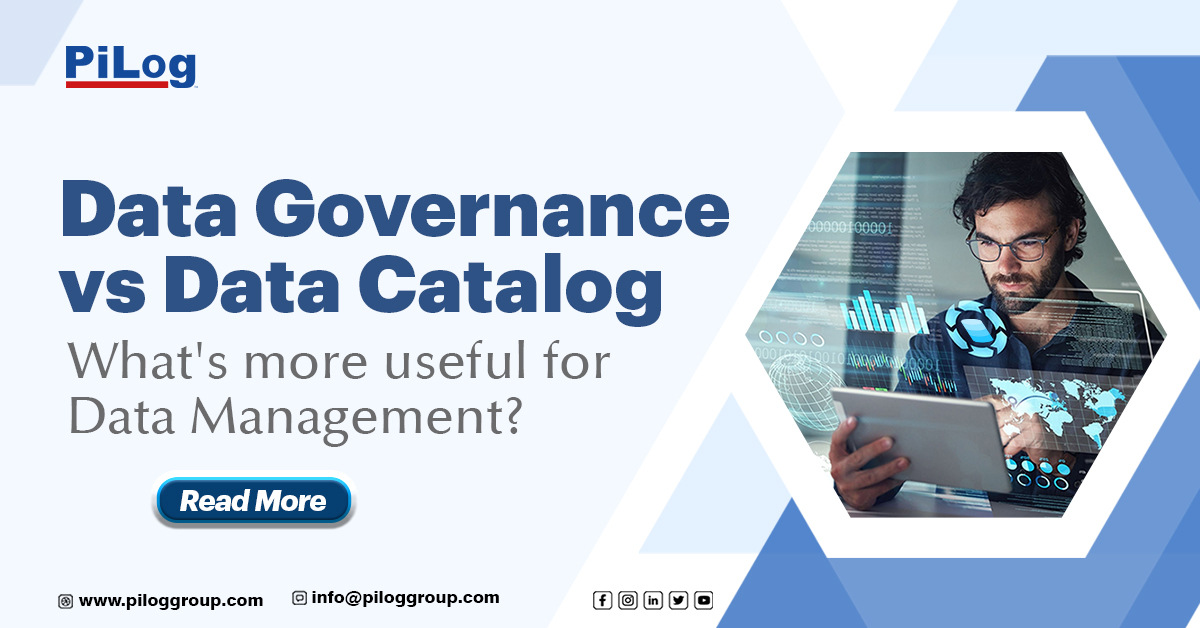Data Catalog Governance
Data Catalog Governance - At the most basic level, data governance and data catalogs intersect in their use of data and data sets. It also ensures that data is used in compliance with regulations and organizational policies. Collaborative data governance is particularly beneficial when multiple governance bodies — like finance, it, data and risk — operate in silos. Without one, data becomes inconsistent, quality suffers, and compliance risks grow. A data catalog creates and maintains an inventory of an enterprise’s data assets across its entire digital environment. This includes defining data ownership, assigning data classifications, establishing data quality standards, and ensuring compliance with regulations like gdpr and ccpa. Implement a data catalog or governance platform. If you’re serious about data governance, the first step is to explore a data catalog. In such environments, complex digital and data initiatives require close coordination across departments. Data governance establishes policies, security, and compliance frameworks to maintain data integrity, while a data catalog structures and classifies data assets to make them discoverable and usable. Why do you need a. Modern data governance refers to a framework of policies, processes, tools, and roles that ensure data is accessible, trustworthy, secure,. In today’s rapidly evolving digital landscape, data is a powerful driver of economic growth, innovation, and societal progress. A data governance strategy ensures your data is reliable, secure, and used effectively across your organization. Collaborative data governance is particularly beneficial when multiple governance bodies — like finance, it, data and risk — operate in silos. It also ensures that data is used in compliance with regulations and organizational policies. Be sure to catalog the industry specific as well as federal/state/local data requirements and reference those in the governance strategy. Without one, data becomes inconsistent, quality suffers, and compliance risks grow. A data catalog creates and maintains an inventory of an enterprise’s data assets across its entire digital environment. Data governance is the process of managing the availability, usability, integrity, and security of the data in enterprise systems, based on the internal data standards and policies that control data usage. Data governance is a framework that is developed through the collaboration of individuals with various. Data governance, including security and compliance, is paramount for any organization dealing with sensitive data. Be sure to catalog the industry specific as well as federal/state/local data requirements and reference those in the governance strategy. At the most basic level, data governance and data catalogs. Effective data governance requires careful management of data throughout its lifecycle. In such environments, complex digital and data initiatives require close coordination across departments. While data governance identifies data owners, stewards, and users, the data catalog shows the data assets of an organization and where they’re located. A data catalog creates and maintains an inventory of an enterprise’s data assets. Begin by understanding the specific requirements and goals for your data catalog. In this article, we’ll explore how globallogix can implement a data catalog as a key part of its data governance strategy to address these issues, ultimately improving trust in its data and empowering its business teams. Adopting unity catalog has fundamentally transformed data governance at groupement mousquetaires. Without. It also ensures that data is used in compliance with regulations and organizational policies. Without one, data becomes inconsistent, quality suffers, and compliance risks grow. Data governance is the process of managing the availability, usability, integrity, and security of the data in enterprise systems, based on the internal data standards and policies that control data usage. At the most basic. A tool like select star provides visibility into your data assets. It also ensures that data is used in compliance with regulations and organizational policies. But for us, unity catalog is more than just a governance. A data catalog is a software application that creates an inventory of an organization's data assets to help data professionals and business users find. Let’s start with looking into what the data governance technology market can offer and what types of data catalogs exist. They are analogous to document management systems that use metadata to describe documents, only their purpose is strictly for structured data. Collaborative data governance is particularly beneficial when multiple governance bodies — like finance, it, data and risk — operate. Begin by understanding the specific requirements and goals for your data catalog. At the most basic level, data governance and data catalogs intersect in their use of data and data sets. A data catalog is a software application that creates an inventory of an organization's data assets to help data professionals and business users find relevant data for analytics uses.. But for us, unity catalog is more than just a governance. In such environments, complex digital and data initiatives require close coordination across departments. Data governance establishes policies, security, and compliance frameworks to maintain data integrity, while a data catalog structures and classifies data assets to make them discoverable and usable. In today’s rapidly evolving digital landscape, data is a. In this article, we’ll explore the origins of these challenges and highlight how a data catalog can serve as a solution to overcome them and can lead to the streamlining of the entire data governance process. This includes defining data ownership, assigning data classifications, establishing data quality standards, and ensuring compliance with regulations like gdpr and ccpa. Effective data governance. By consolidating this information, a data catalog simplifies data discovery, supports more effective data governance, and enables organizations to maximize the value of their data. A data catalog is a strategic tool that helps organizations unlock the full value of their data. If you’re serious about data governance, the first step is to explore a data catalog. A data governance. Data catalogs capture and manage the metadata that describes data sets and data elements. Be sure to catalog the industry specific as well as federal/state/local data requirements and reference those in the governance strategy. A tool like select star provides visibility into your data assets. Modern data governance refers to a framework of policies, processes, tools, and roles that ensure data is accessible, trustworthy, secure,. A data catalog is crucial for data governance as it provides a searchable inventory of an organization's data assets, improves data understanding. This is where metadata, ownership, lineage, and usage insights come together. Effective & secure management of data assets is critical for any organization. In this article, we’ll explore the origins of these challenges and highlight how a data catalog can serve as a solution to overcome them and can lead to the streamlining of the entire data governance process. But for us, unity catalog is more than just a governance. In today’s rapidly evolving digital landscape, data is a powerful driver of economic growth, innovation, and societal progress. Data governance establishes policies, security, and compliance frameworks to maintain data integrity, while a data catalog structures and classifies data assets to make them discoverable and usable. We are seeking an experienced data governance lead with 10+ years of experience to join our team. At the most basic level, data governance and data catalogs intersect in their use of data and data sets. Without data governance, a data catalog can quickly become outdated and inaccurate. A data catalog creates and maintains an inventory of an enterprise’s data assets across its entire digital environment. In this, the final blog of the series, i lay out how to get started quickly with data governance.Data Governance Committee Launches CWI Enterprise Data Catalog CWI
The Two Ways of Building Data Governance Accurity Blog
Implementation reference architecture diagrams Enterprise Data
Metadata Management & Data Catalog (Data Architecture Data Governance
Cloud Data Governance and Catalog Deep Dive Demo Data Quality
Informatica Cloud Data Governance and Catalog Demo YouTube
Enterprise Data Governance with Modern Data Catalog Platforms Gigaom
Data governance overview Azure Databricks Microsoft Learn
Data Catalog and Data Governance How Do They Complement?
Data Governance vs Data Catalog Key Differences and Benefits
Data Catalogs Play A Pivotal Role In Ensuring.
Effective Data Governance Requires Careful Management Of Data Throughout Its Lifecycle.
Implement A Data Catalog Or Governance Platform.
Implementing A Data Catalog Involves Several Strategic Steps To Ensure It Meets Your Organization's Needs And Integrates Seamlessly With Your Existing Data Infrastructure.
Related Post:









